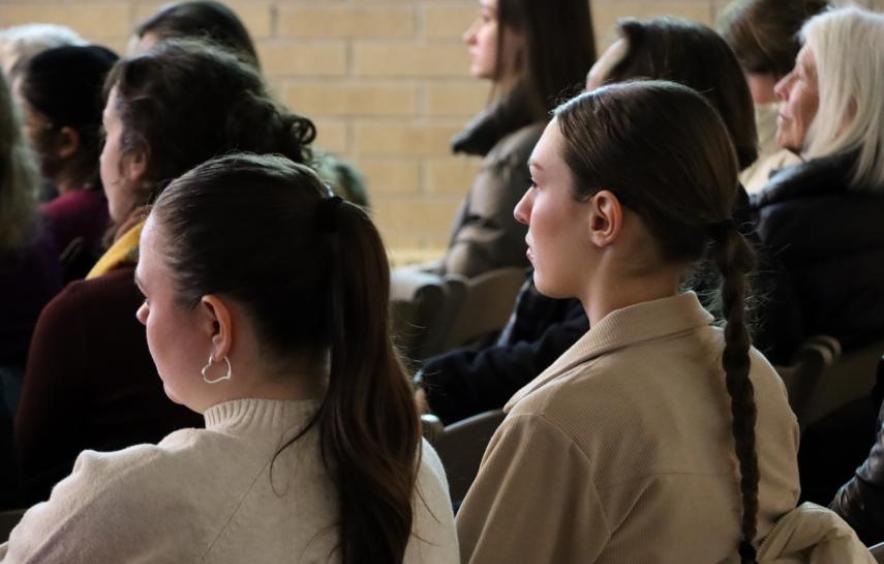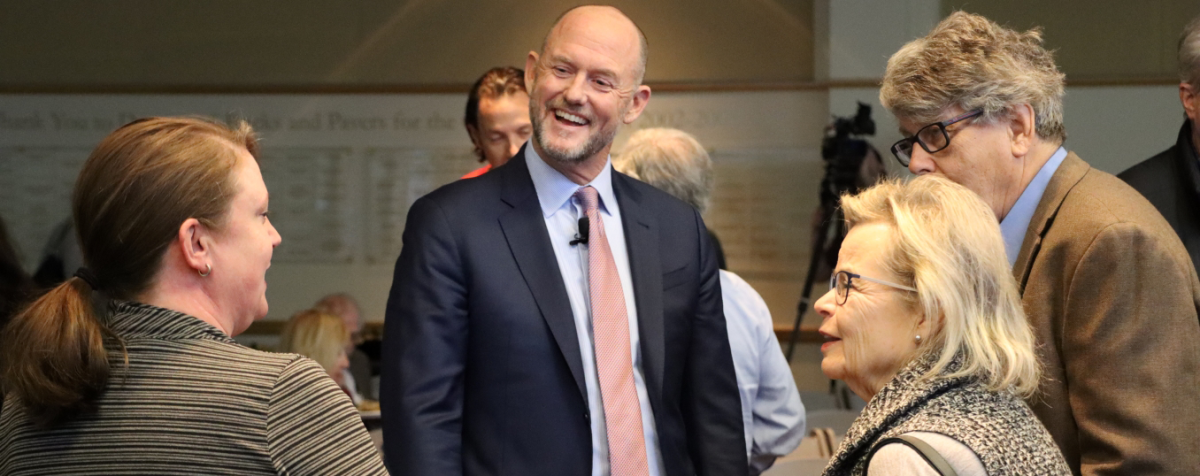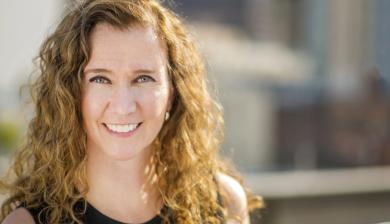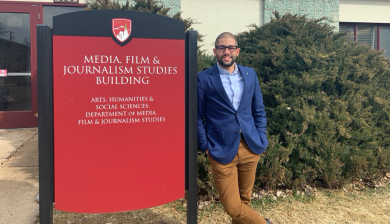About Media, Film and Journalism Studies
Where Media Theory Meets Practice
Intellectual curiosity and personal creativity combine across our undergraduate majors, graduate degrees and extensive internship programs. We're dedicated to building an engaged community that critically understands, practices and explores media, culture and public communication in a global society. Together, we uphold a commitment to critical thinking and experiential learning alongside immersive community engagement and social justice.

Inclusive Excellence
Whether through teaching, research or creative expression, we support a diverse and inclusive community that prepares learners for an interconnected world. As media-makers and researchers, we recognize the power of representation, questioning privilege and honoring difference as we position ourselves as ongoing learners in the classroom and across the world.
-
Statement of Inclusive Excellence
The Department of Media, Film & Journalism Studies supports the University of Denver's commitment to inclusive excellence through its teaching, research, creative work, and its service to the University, community, and its global publics. Following the University's commitment to the belief that creating a diverse and inclusive community is necessary as we seek to prepare students for a globalized and interconnected world, we adopt the definition of inclusive excellence that is put forth by the university's Center for Multicultural Excellence:
Inclusive Excellence (IE) is the recognition that a community or institution's success is dependent on how well it values, engages and includes the rich diversity of students, staff, faculty, administrators, and alumni constituents. More than a short-term project or single office initiative, this comprehensive approach requires a fundamental transformation of the institution by embedding and practicing IE in every effort, aspect, and level of a college or university. The goal is to make IE a habit that is implemented and practiced consistently throughout an institution.
As a department, we therefore embrace the following goals:
- Recognize the power of representation. We strive to be sensitive toward the ways that mediated representations contribute to the construction of society. Therefore, we recognize the interrelationship of power and representation, and challenge one another to create representations and critiques that support the rights of all persons to dignity and respect, with special attention to those who are members of marginalized or oppressed communities.
- Foster active participation by all. We strive to create classrooms that are welcoming and that invite participation, particularly in difficult discussions about difference. We stand with members of marginalized or oppressed communities and set high expectations for the respect of these persons and groups. We go out of our way to welcome newcomers and strangers into our programs and activities. Moreover, we seek to model the incorporation of a variety of perspectives and life experiences into our teaching endeavors by including books, articles, and media texts written or created by those with experiences and perspectives that differ from our own and extending guest lecture and other speaking invitations to people whose experiences differ from our own. We strive to incorporate into classes opportunities for students, faculty, and staff to be involved in campus-wide programming related to inclusive excellence.
- Recognize that language is important. We include a statement of expectations within our courses that recognizes that courses in our department often include sensitive material. We encourage students to be mindful and use language and reasoning that does not disrespect or marginalize others. We recognize that the University of Denver strives for inclusive excellence and this extends to this classroom; recognizing and respecting diverse identities, privilege and personal experiences is essential.
- Listen more than we speak. We recognize ourselves as people who are constantly learning and we therefore approach listening as a discipline that opens opportunities for knowledge and growth.
- Practice empathy. We seek to better understand the ways that communication practices and processes might affect others, so that we might appreciate how others may feel in relation to these processes and practices.
- Seek self-awareness. We strive to be more aware of our own privileges and remain open to change as we recognize that our actions or words might offend or hurt others, even if inadvertently. To accomplish this, we are committed to engaging annually in training, focused dialogue, and other activities involving faculty, staff, and students.
- Honor difference. We seek ways to express our appreciation for differing backgrounds and perspectives in our creative work, research, and teaching endeavors.
- Give people the benefit of the doubt. We recognize that most people do not seek to cause harm or hurt, and therefore we are generous in forgiving others.
- Embrace restorative practices. Even as we forgive, we graciously call attention to occasions where intentions fall short so that those involved might work to repair any damage done to relationships.
This is an incomplete list of goals, and we welcome members of our department's community to add to this list as we work together to embrace inclusive excellence.
Daniel Estes, MFJS StudentWhen I began my coursework ... my goal was to develop the communication skillset necessary to make the world a better place. I recognize that the phrase 'make the world a better place' sounds like a tireless cliché to most. Yet, instead of being brought down to earth by my studies, my time in the program has only strengthened my resolve that this is both a worthwhile and attainable goal.







